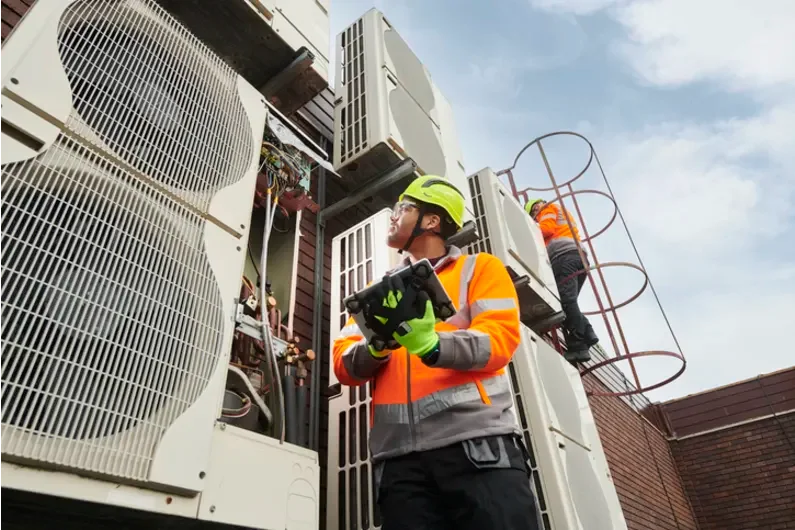How to be a Certified Electrician in California defines the process one must follow to legally perform electrical work within the state. California requires electricians to undergo specific training and education, demonstrating competence in electrical theory, codes, and standards. This pathway ensures that practitioners can safely and expertly manage electrical systems and repairs.
To begin this journey, aspiring electricians must enroll in an approved apprenticeship or a state-recognized trade school program. This foundational step combines classroom instruction with hands-on experience. Upon completion, candidates must pass the California electrical certification exam, which tests knowledge of the National Electrical Code (NEC) and state regulations.
Maintaining certification involves continuous education to keep up with evolving technology and electrical codes. Certified electricians in California are expected to renew their licenses periodically, proving their commitment to professional growth and adherence to the highest safety standards in the electrical industry.
Embarking on a career as an electrician in California can be a highly rewarding pursuit, offering both professional stability and the opportunity to work on a diverse range of electrical systems. Given the state’s stringent licensing requirements, it’s crucial to understand the steps towards certification, which guarantees adherence to the highest industry standards.
In this article, we will guide you through the essential stages you need to navigate to become a certified electrician in the Golden State. From choosing the right education and training programs to preparing for the rigorous certification exam, our comprehensive overview aims to demystify the process and set you on a clear path to success.
Join us as we explore the detailed requirements for certification, discuss the importance of hands-on experience, and share practical tips for passing the California electrical certification exam. Our introduction opens the door to a deeper understanding of what it takes to power up your career as a certified electrician in California.
Overview of the Certification Process for Electricians in California
The journey to becoming a certified electrician in California begins with understanding the meticulous certification process. It’s a pathway with multiple stages designed to ensure that individuals who pursue this career are highly qualified and skilled. Initially, candidates must prove they have completed an adequate amount of theoretical and practical training. These requirements strike the perfect balance between knowledge and hands-on experience, keeping both at the forefront of a successful electrician’s skill set.
Subsequently, the candidate’s next step involves passing a thorough examination that tests their understanding of electrical codes and the various aspects of installation and maintenance. This exam serves to weed out those who may not be sufficiently prepared for the multifaceted nature of electrical work. Given the gravity of electrical safety and its impact on the public, the state’s strict testing criteria acts as a gatekeeper, maintaining the profession’s integrity and safety standards.
After passing the exam, applicants must submit proof of their work experience for evaluation. It’s crucial for the certification bodies to ascertain that an individual possesses real-world electrical experience. This criterion ensures that electricians not only know the theory behind their craft but can also apply their knowledge practically. Experience is a significant component; it builds competency and confidence behind every switch serviced and wire connected.
Moreover, continuing education is an essential part of maintaining certification in California. Electricians are required to stay updated on the latest electrical codes and practices. This ongoing education ensures that electricians remain knowledgeable about advancements in their field, thus safeguarding the community with modern, compliant electrical work.
Finally, once a candidate meets all the above benchmarks, obtaining a valid certification becomes a formality. However, the process doesn’t end here. Being a certified electrician includes the responsibility to uphold the profession’s standards. Regular renewals and adherence to state regulations guarantee that electricians continue to contribute positively to the safety and functionality of California’s electrical infrastructure.
Educational Requirements for Aspiring Electricians
The foundation of an aspiring electrician’s career is deeply rooted in formal education. To grasp the complexities of the trade, one must embark on a journey through foundational courses that teach the principles of electricity, wiring techniques, safety standards, and much more. This theoretical grounding is essential, serving as the bedrock upon which all practical skills are built. Educational institutions often provide a comprehensive curriculum that encompasses the alternating and direct current theories, reading blueprints, and understanding electrical codes.
In addition to classroom learning, students must also hone their skills through hands-on training. Such practical exercises expose learners to real-world scenarios they are likely to encounter in their future profession. Completing these requirements is not just a formality; it is a vital part of an electrician’s education, blending the theoretical with the manual, forming a competent practitioner ready to manage the complexities of the job.
Progressing from basic education, aspiring electricians delve into specialized subjects that enhance their understanding and prepare them for specific roles within the industry. This may include studying residential wiring, commercial electrical systems, or even delving into green energy technology. Each area offers unique challenges and learning opportunities, requiring electricians to exercise critical thinking and adaptability.
Furthermore, education doesn’t stop at obtaining a degree or completing a course; it also involves preparing for certification exams. Aspiring electricians must dedicate time to review and understand the testing material thoroughly, as it is crucial for gaining certification. Exam preparations often underscore the intricacies of electrical work that might have been underemphasized during hands-on training.
Upon completing the educational journey, one achieves more than just eligibility for certification. Equipped with solid knowledge and practical skills, electricians are set to safely and effectively navigate their careers. Continuous learning opportunities also abound for those who wish to specialize or advance in the electrical field, emphasizing the importance of a steadfast commitment to education in this dynamic trade.
Apprenticeship Programs: A Pathway to Certification
Apprenticeship programs stand out as a critical pathway for those aiming to become certified electricians. Combining rigorous classroom instruction with practical, on-the-job training, apprenticeships offer a well-rounded experience. Entry into such programs is competitive and requires a commitment to both learning and working simultaneously. Throughout the program, apprentices work under the guidance of experienced professionals, gaining invaluable knowledge that only real-world application can provide.
The structure of an apprenticeship is meticulous and purposeful. Participants spend a significant amount of time on-site, confronting a variety of electrical challenges that enhance their problem-solving skills. In parallel, the classroom component deepens their understanding of electrical theory, codes, and safety procedures.
One of the most appealing aspects of apprenticeships is the earn-while-you-learn model. This allows apprentices to gain financial independence while investing in their future. It is an incentive for continuous improvement and a tangible reward for the hard work that an apprenticeship entails.
Completing an apprenticeship is a commendable feat, indicative of both the technical ability and the personal resilience possessed by the apprentice. Such programs tend to last multiple years, and the amount of experience and knowledge garnered during this time is vast. It is a testament to the apprentice’s dedication to their craft and the earnestness with which they approach their future profession.
With a combination of education and practical experience, apprentices have developed a robust foundation from which to launch their careers. Thus, apprenticeships are not just a means to certification; they are a comprehensive educational experience that prepares individuals for a lifetime of skilled work in the electrical industry.
The Importance of the Electrician Certification Exam
The electrician certification exam is a vital juncture in the journey of becoming a professional in the field. Therefore, the certification exam acts as a quality control tool, affirming that electricians meet high standards of knowledge and practice. The lives and properties protected by their work are a testament to the exam’s significance. How to be a Certified Electrician in California
Preparation for the exam is no small task and requires dedication. Prospective test-takers often invest substantial time in reviewing materials and honing their understanding of complex topics.
It opens doors to career opportunities and is a key element in building a reputation as a skilled, trustworthy professional. In essence, the electrician certification exam solidifies an individual’s standing in the industry and demonstrates commitment to excellence.
Meeting the Work Experience Criteria
Meeting the work experience criteria is a pivotal requirement for those aspiring to obtain electrician certification. This real-world exposure is crucial, as it cements the theoretical learning from classrooms and textbooks with practical, on-the-job training.
The nature of the work experience is diverse, often covering a range of electrical tasks. Apprentices might find themselves installing wiring in new constructions, retrofitting older buildings, or troubleshooting complex electrical issues. Each task carries its own set of challenges and learning opportunities, collectively broadening the apprentice’s skill set. It is this variety that prepares them for the multifaceted nature of electrical work.
Mastery of the trade doesn’t come from rote tasks alone; it develops when one understands the why behind each action. This nuanced understanding of electrical work is precisely what the work experience criteria aim to instill. In doing so, apprentices transform into thoughtful, analytical electricians capable of approaching each job with a problem-solving mindset. How to be a Certified Electrician in California
It’s not only about the quantity of experience but also the quality. Finally, meeting the work experience criteria is more than a step toward certification. It’s an investment in an electrician’s professional development. With each hour of work, apprentices forge their reputations and build the confidence necessary for a successful career.



